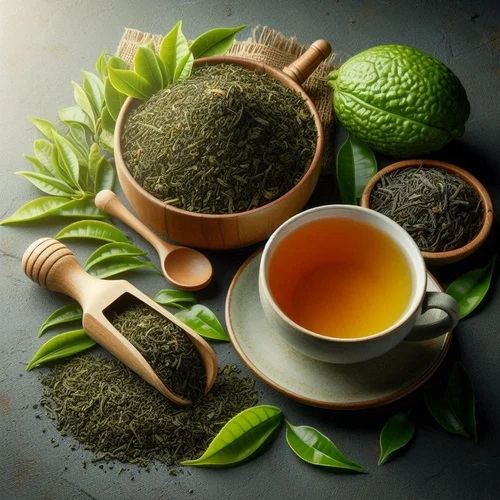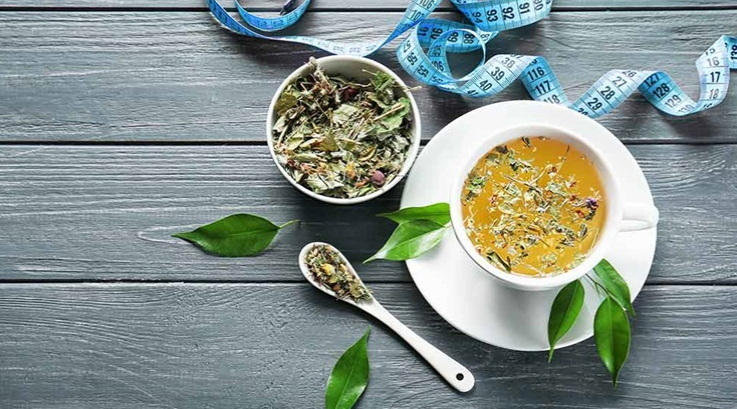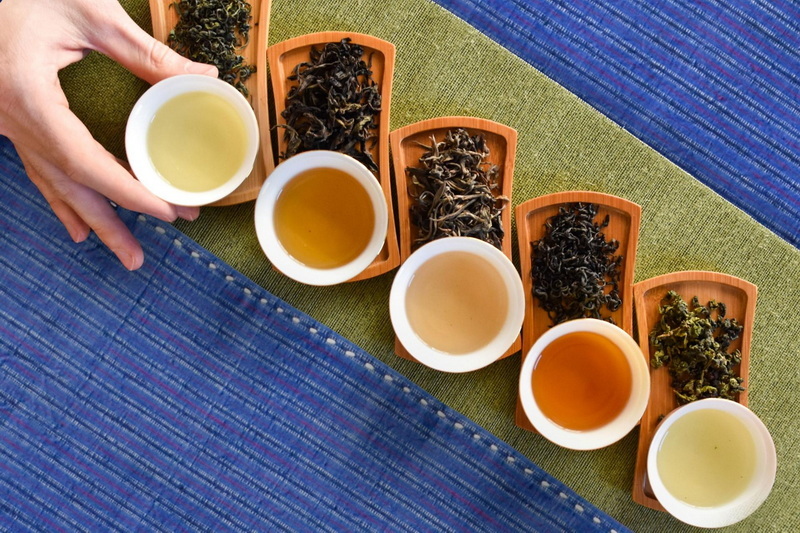Content Menu
● What is Green Tea Extract?
● Potential Benefits of Green Tea Extract
● Potential Risks and Side Effects of Green Tea Extract
● Factors Influencing the Risk of Side Effects
● Who Should Avoid Green Tea Extract?
● How to Use Green Tea Extract Safely
● Conclusion
● FAQ
>> 1. What are the main benefits of green tea extract?
>> 2. What are the potential side effects of green tea extract?
>> 3. Who should avoid taking green tea extract?
>> 4. How can I use green tea extract safely?
>> 5. Can green tea extract interact with medications?
● Citations:
Green tea extract (GTE) has garnered considerable attention for its potential health benefits, including antioxidant properties, weight management, and cardiovascular support[10][11]. However, alongside these purported advantages, concerns have arisen regarding the safety of GTE, particularly its potential adverse effects on the liver[1][3]. This article aims to provide a comprehensive overview of the potential risks and benefits associated with green tea extract, helping you make informed decisions about its use.

What is Green Tea Extract?
Green tea extract is derived from the leaves of the Camellia sinensis plant, the same plant that is used to produce green tea[4][10]. Unlike black tea, green tea leaves are unfermented, which helps preserve their high concentration of polyphenols, particularly catechins[4]. These catechins, especially epigallocatechin gallate (EGCG), are responsible for many of the purported health benefits of green tea extract[4].
Potential Benefits of Green Tea Extract
1. Antioxidant Properties: Green tea extract is rich in antioxidants, which help protect the body against damage from free radicals[4][10]. Oxidative stress, caused by an excess of free radicals, is implicated in various chronic diseases, including cancer, heart disease, and Alzheimer's disease[10].
2. Weight Management: Some studies suggest that green tea extract may aid in weight loss and management[7][10]. It is believed that catechins in green tea extract can enhance metabolism and promote fat burning[7].
3. Cardiovascular Health: Research indicates that green tea extract may improve cardiovascular health by reducing blood pressure, lowering cholesterol levels, and preventing the formation of blood clots[9][11].
4. Skin Health: The antioxidant and anti-inflammatory properties of green tea extract may benefit skin health[11]. Studies suggest it can help reduce acne, protect against sun damage, and slow down the aging process[11].
5. Other Potential Benefits: Green tea extract has also been studied for its potential role in preventing certain types of cancer, managing diabetes, and improving liver health[7][9][10]. However, more research is needed to confirm these benefits.
Potential Risks and Side Effects of Green Tea Extract
1. Liver Damage: The most concerning side effect associated with green tea extract is liver damage[1][3]. Several cases of liver toxicity, including acute liver failure, have been linked to the use of green tea extract supplements[2][8]. Symptoms of liver problems include yellowing of the skin or eyes (jaundice), abdominal pain, dark urine, nausea, and fatigue[1].
-Green tea extracts may cause liver problems. Symptoms can include yellowing of your skin or the whites of your eyes, nausea, and stomach pain[1].
2. Caffeine-Related Side Effects: Green tea extract contains caffeine, which can cause side effects such as anxiety, tremors, irritability, and sleeping problems[1][2]. These side effects are more likely to occur in individuals who are sensitive to caffeine or who take large doses of green tea extract[1].
3. Gastrointestinal Issues: Some people may experience gastrointestinal side effects, such as nausea, vomiting, diarrhea, abdominal pain, and bloating, when taking green tea extract[4].
4. Headaches and Dizziness: Headaches and dizziness have also been reported as potential side effects of green tea extract, possibly due to its caffeine content[6].
5. Other Potential Side Effects: Other possible side effects of green tea extract include allergic reactions, unusual bleeding, anemia, anxiety disorders, heart disease, and glaucoma[2][5].

Factors Influencing the Risk of Side Effects
1. Dosage: The risk of side effects appears to be higher with high doses of green tea extract[3][9]. It is important to follow recommended dosages and avoid taking excessive amounts.
2. Individual Sensitivity: Some individuals may be more sensitive to the effects of green tea extract than others[1]. Factors such as genetics, underlying health conditions, and concurrent use of other medications or supplements can influence an individual's response to green tea extract.
3. Product Quality: The quality and purity of green tea extract supplements can vary widely[11]. It is important to choose reputable brands and products that have been tested for contaminants and standardized for their EGCG content.
4. Genetic Predisposition: Certain genetic variations may increase the risk of liver damage from high-dose green tea extract[3].
Who Should Avoid Green Tea Extract?
1. Individuals with Liver Problems: People with pre-existing liver conditions should avoid green tea extract, as it may worsen their condition[2][12].
2. Pregnant and Breastfeeding Women: Pregnant and breastfeeding women should exercise caution when using green tea extract due to the potential risks associated with caffeine and other compounds[2].
3. Children: Green tea extract is possibly safe in children in low amounts (caffeine levels found in foods)[2].
4. Individuals with Certain Medical Conditions: People with anemia, anxiety disorders, bleeding disorders, heart disease, glaucoma, or osteoporosis should consult with a healthcare professional before using green tea extract[2][5].
5. Individuals Taking Certain Medications: Green tea extract may interact with certain medications, such as blood thinners and stimulants[10]. It is important to talk to a healthcare provider before using green tea extract if you are taking any medications.
How to Use Green Tea Extract Safely
1. Consult with a Healthcare Professional: Before taking green tea extract, especially in high doses, it is important to talk to a healthcare provider. They can help you determine if it is safe for you based on your individual health status and risk factors.
2. Start with a Low Dose: If you are new to green tea extract, start with a low dose and gradually increase it as tolerated. This can help minimize the risk of side effects.
3. Choose High-Quality Products: Select reputable brands and products that have been tested for contaminants and standardized for their EGCG content.
4. Monitor for Side Effects: Pay attention to any potential side effects, such as liver problems, caffeine-related symptoms, or gastrointestinal issues. If you experience any adverse effects, stop using green tea extract and consult with a healthcare provider.
5. Avoid Combining with Other Stimulants: Do not take green tea extract with other stimulants, such as caffeine or stimulant drugs, as this may increase the risk of side effects[10].
Conclusion
Green tea extract has potential health benefits, but it also carries potential risks, particularly liver damage[3][10]. The risk of side effects appears to be higher with high doses, individual sensitivity, and certain underlying health conditions[1][3]. It is important to consult with a healthcare professional before using green tea extract, especially in high doses, and to monitor for any potential side effects[2]. By taking these precautions, you can minimize the risks and maximize the potential benefits of green tea extract.

FAQ
1. What are the main benefits of green tea extract?
Green tea extract is known for its antioxidant properties, which can protect against cell damage[4][10]. It may also aid in weight management, improve cardiovascular health, and benefit skin health[7][10][11].
2. What are the potential side effects of green tea extract?
The most concerning side effect is liver damage, but other side effects can include anxiety, tremors, irritability, sleeping problems, nausea, vomiting, diarrhea, headaches, and dizziness[1][2][4][6].
3. Who should avoid taking green tea extract?
Individuals with liver problems, pregnant and breastfeeding women, children, and those with certain medical conditions like anemia, anxiety disorders, or heart disease should avoid green tea extract[2][5][12].
4. How can I use green tea extract safely?
Consult with a healthcare professional before use, start with a low dose, choose high-quality products, and monitor for any side effects[2].
5. Can green tea extract interact with medications?
Yes, green tea extract may interact with certain medications, such as blood thinners and stimulants. Consult with a healthcare provider if you are taking any medications[10].
Citations:
[1] https://www.urmc.rochester.edu/encyclopedia/content?contenttypeid=19&contentid=greenteaextract
[2] https://www.drugs.com/mtm/green-tea.html
[3] https://scitechdaily.com/not-safe-for-everybody-the-hidden-risk-of-green-tea-extract/
[4] https://www.vumc.org/poison-control/toxicology-question-week/march-12-2021-what-are-adverse-effects-green-tea-extract
[5] https://my.clevelandclinic.org/health/drugs/20553-green-tea-oral-dosage-forms
[6] https://www.qherb.net/news/green-tea-extract-side-effects/
[7] https://pubmed.ncbi.nlm.nih.gov/38031409/
[8] https://pmc.ncbi.nlm.nih.gov/articles/PMC3746392/
[9] https://www.webmd.com/vitamins/ai/ingredientmono-960/green-tea
[10] https://www.medicalnewstoday.com/articles/269538
[11] https://health.clevelandclinic.org/green-tea-extract-a-better-way-to-boost-energy-or-not
[12] https://www.canada.ca/en/health-canada/services/drugs-health-products/medeffect-canada/safety-reviews/green-tea-extract-containing-natural-health-products-assessing-potential-risk-liver-injury.html






























